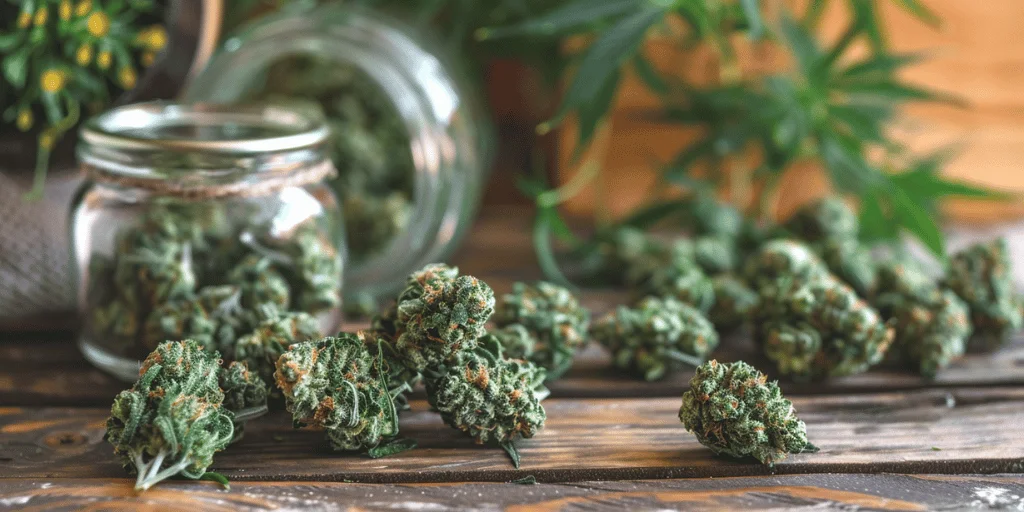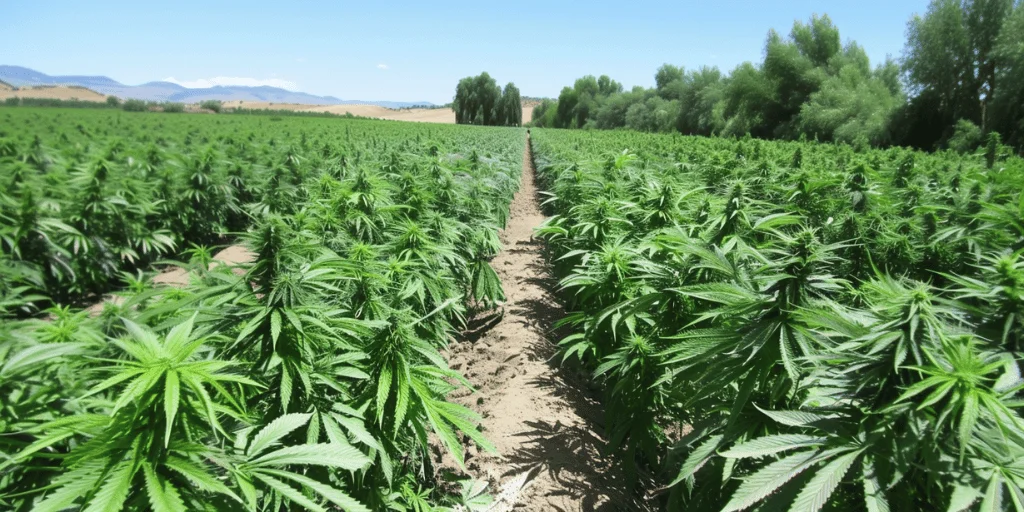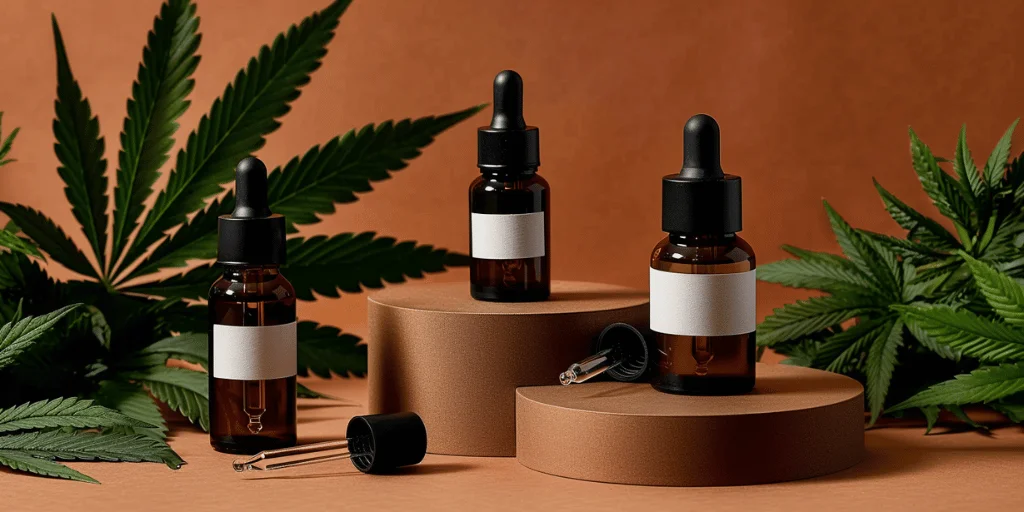If you ever asked “Is CBD legal in Estonia?”, the legal status of CBD in Estonia is clear – this means great opportunities for business representatives interested in the European CBD market. CBD is legal in Estonia as long as it contains less than 0.3% THC. Hemp-based CBD products are available for purchase, but must be marketed not as medicines. This has opened the door for various forms of CBD, including oils, capsules, and topical applications, to be fully available to consumers.
As the demand for CBD grows, Estonia’s open legal structure allows businesses to integrate into this expanding market, providing consumers with access to high-quality CBD products. If you’re thinking of entering the CBD industry in Estonia, there is no better time. From wellness-oriented items to innovative CBD products, there is a lot of potential for CBD businesses operating in Estonia’s CBD market. Understanding the regulations surrounding the legal status of CBD is important for maintaining compliance and staying competitive in this market.
The legal status of CBD in Estonia
In Estonia, the legal framework surrounding CBD products is really favorable for businesses. CBD products, including oils, tinctures, capsules, and cosmetics can be legally purchased and sold across Estonia, as long as they are derived from legal hemp crops and contain less than 0.3% THC. CBD oil, for instance, can be found in a variety of shops such as pharmacies, health food stores, and even gas stations.
This wide availability makes it easier for consumers to access high-quality CBD products. Furthermore, Estonia, as a member of the EU, adheres to the 2020 EU Court ruling that defines CBD as a non-drug substance, allowing products legally produced in other member states to be marketed within the country. While Estonia’s CBD market grows constantly, it is important for businesses to stay compliant with local regulations, especially concerning the THC limits, to avoid issues with cross-border sales. Understanding the legal framework in Estonia is key to successfully entering the growing CBD industry.

The legality of THC
Estonia’s legal attitude on cannabis reflects a relatively tolerant yet regulated approach to marijuana consumption. While THC-rich cannabis remains illegal in Estonia, the country has decriminalized the possession of small amounts for personal use. Individuals are allowed to possess up to 7.5 grams of dried cannabis containing more than 0.3% THC without facing criminal charges, although fines can be enforced for larger amounts or suspected commercial use. Despite this tolerance, commercial cannabis production and trafficking are strictly illegal, with potential penalties including imprisonment or community service.
Businesses entering the CBD market in Estonia should be aware of these nuances in cannabis law, as CBD products must comply with the strict THC limits. While social acceptance of cannabis use has grown, it is important to remember that public consumption of cannabis, even in small amounts, is prohibited near schools, kindergartens, and playgrounds. For businesses in the CBD industry, understanding these distinctions between legal CBD products and illegal THC-rich cannabis is key for avoiding legal issues in Estonia.
Medical marijuana
Estonia was one of the early adopters of medical cannabis legislation in Europe, introducing laws to allow its use for treatment back in 2005. However, despite this early progress, the country’s medical cannabis program remains limited. Estonia does not have a domestic production system for medical cannabis, meaning that patients primarily rely on cannabinoid-based medicines, often synthetic compounds, which are generally less effective than natural cannabis. Medical cannabis prescriptions are not easily accessible – they require approval on a case-by-case basis by the Ministry of Social Affairs.
In rare circumstances, doctors can apply for special permission to prescribe dried cannabis for specific medical conditions, but the process is quite strict and involves review by the national drug control authority. While the market for CBD is fully legal, the complexities of medical cannabis access and production highlight potential challenges in expanding into this sector.
Hemp cultivation
Hemp cultivation has a long history in Estonia, and the industry has over 6,800 hectares dedicated to the crop. The legal framework surrounding hemp production in Estonia aligns with EU standards, allowing farmers to grow varieties that contain less than 0.3% THC. Most of the hemp grown in Estonia is used for fiber and seeds, which are valuable in various industries. However, cultivating hemp for flowers and leaves is more challenging due to Estonia’s climate, where unpredictable weather and long summer days can cause unwanted implantation and increase THC levels in the plants.

Recognizing these difficulties, Estonia raised the legal THC limit from 0.2% to 0.3% in 2022, ensuring that cannabis grown from EU-certified seeds with THC levels below this threshold is not classified as illegal. These quite recent changes in regulations reflect Estonia’s commitment to supporting the growing hemp industry, making it an attractive market for CBD businesses.
For businesses interested in the CBD market, understanding these agricultural challenges and legal requirements is also important. The legal cultivation of hemp means producing CBD products in Estonia is possible, but growers must remain aware about climate-related risks that can affect the crop’s THC content.
Operating a CBD business in Estonia
Starting a CBD business in Estonia is relatively easy due to the clear legal framework that aligns with EU regulations. CBD products are legal in Estonia as long as they contain less than 0.3% THC – this means that sourcing and producing compliant CBD products is even more straightforward. Businesses in Estonia also benefit from the country’s growing hemp industry, which is the second-largest in Europe, providing easy access to locally grown, high-quality raw materials.
However, it is important for businesses to comply with legal requirements, particularly ensuring that products are derived from industrial hemp and meet the THC limit. One key restriction is that CBD products cannot be marketed as medicinal, and advertising must avoid making misleading claims about health benefits. Additionally, third-party lab testing is necessary to guarantee product safety and quality, helping to maintain consumer trust and regulatory compliance.
For those new to the CBD industry, understanding the regulatory landscape may seem complex, but CBD manufacturing experts like Hempo Solutions offer consulting services that can assist with branding and regulatory compliance.
The future of the CBD industry in Estonia
The demand for CBD products is on the rise globally, and Estonia is also not an exception in this growing market. As the legal framework in Estonia supports the sale and distribution of CBD products, more companies are expected to enter the market in the coming years. This trend is likely to encourage the continuous expansion of the CBD industry within the country.
One of the most popular products in Estonia is CBD oil, which has gained a strong popularity among consumers. The fact that CBD oil does not produce a ‘high’ makes it especially appealing to individuals looking for reliable options. As consumer interest in natural health solutions increases, CBD oil is expected to play an important role in the growth of Estonia’s CBD market. Business representatives exploring the CBD industry in Estonia should recognize this expanding demand and consider offering high-quality CBD oil products to meet consumer needs.

Conclusion
Estonia’s CBD market offers a promising opportunity for businesses, both domestic and international, thanks to its clear legal framework and growing hemp production industry. Under EU regulations, CBD oil is legal in Estonia as long as it contains less than 0.3% THC, which aligns with the 2020 EU ruling that allows CBD products legally produced in other member states to be marketed across the EU, including Estonia. This opens up the market for a range of CBD products, offering both local producers and foreign companies a chance to enter the CBD industry.
With over 6,800 hectares dedicated to hemp cultivation, Estonia is the second-largest hemp producer in Europe, providing a valuable source of local raw materials for CBD production. While the climate can be challenging for growing hemp flowers, the country shines in producing hemp for fiber and seeds.
However, CBD businesses must be cautious with marketing strategies, as CBD products cannot be promoted as medicinal items, and advertising must comply with strict regulations to avoid misleading claims. With CBD oil and cosmetics available in pharmacies and retail stores across Estonia, the market is set for further growth. We offer essential support for CBD market entrants, helping you understand Estonia’s regulatory landscape and successfully start your CBD business.